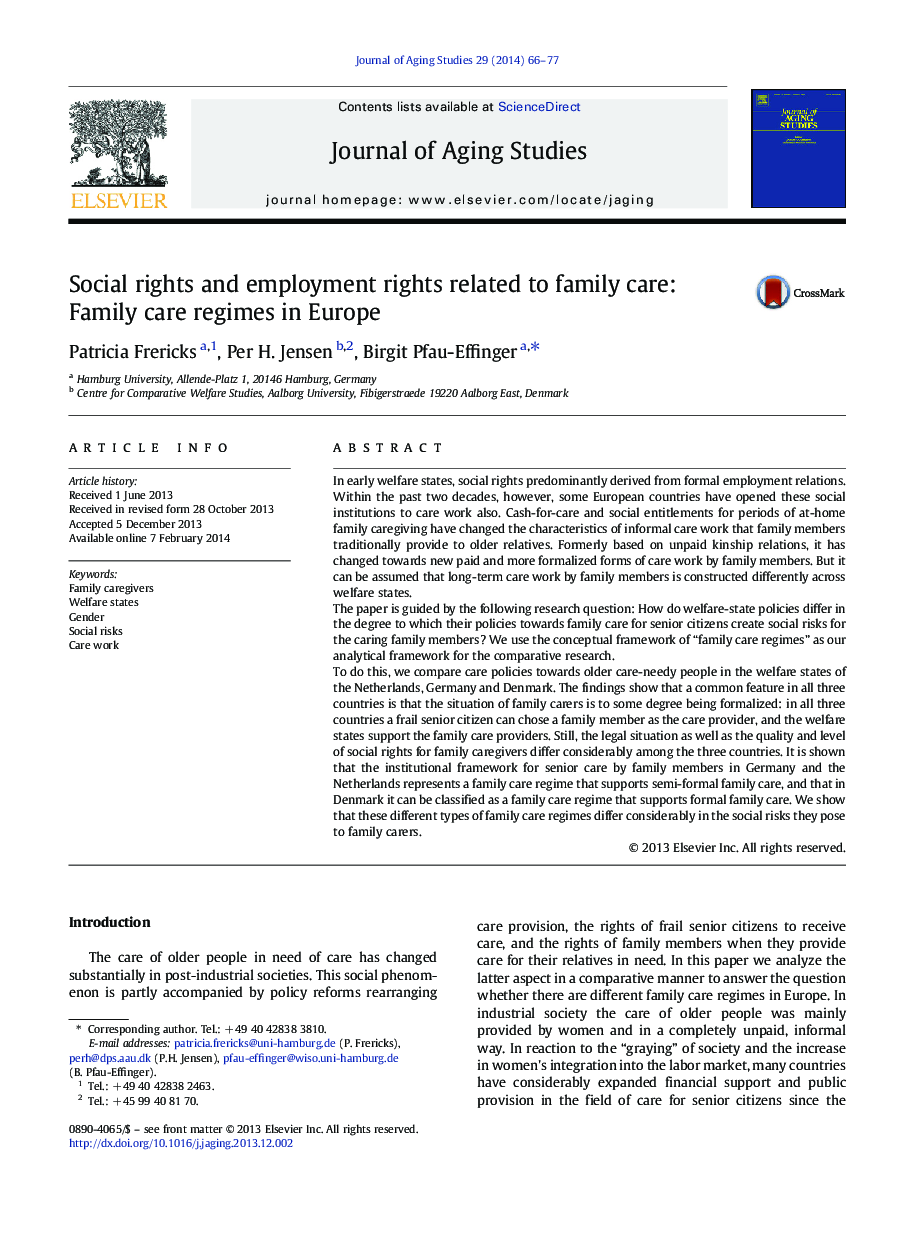| Article ID | Journal | Published Year | Pages | File Type |
|---|---|---|---|---|
| 7517816 | Journal of Aging Studies | 2014 | 12 Pages |
Abstract
To do this, we compare care policies towards older care-needy people in the welfare states of the Netherlands, Germany and Denmark. The findings show that a common feature in all three countries is that the situation of family carers is to some degree being formalized: in all three countries a frail senior citizen can chose a family member as the care provider, and the welfare states support the family care providers. Still, the legal situation as well as the quality and level of social rights for family caregivers differ considerably among the three countries. It is shown that the institutional framework for senior care by family members in Germany and the Netherlands represents a family care regime that supports semi-formal family care, and that in Denmark it can be classified as a family care regime that supports formal family care. We show that these different types of family care regimes differ considerably in the social risks they pose to family carers.
Related Topics
Health Sciences
Medicine and Dentistry
Geriatrics and Gerontology
Authors
Patricia Frericks, Per H. Jensen, Birgit Pfau-Effinger,
